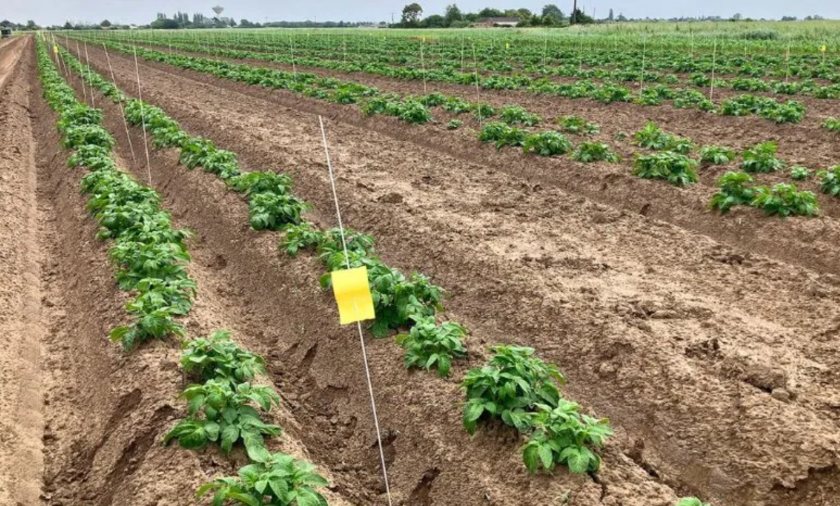
Trials have revealed how the application of silicon biostimulants can have a positive effect on potato yields and improve the crop's natural defence to late blight.
Carried out by Orion Future Technologies, working with Hutchinsons and Richard Austin Agriculture, the trials saw a boost to the Melody crop, of 18%.
This was achieved by adding two biostimulants - Sirius and Pluton - at a concentration of 0.5 litres per hectare to the standard tank mix across eight applications.
A separate trial sought to understand the impact of using biostimulants as a way to strengthen potato plants to better withstand late blight.
This trial used Sirius, a silicon-based biostimulant, with Trident, a micronutrient product.
Orion’s R&D agronomist, Kate Williams said: “Trident is a copper and zinc formulation that stimulates plant health and helps to protect against common stresses.
"In the trial, a concentration of 3 litres per hectare of Trident was combined with a 0.5 litre per hectare concentration of Sirius every week for 12 weeks.”
The outcome of the additional micronutrient and silicon boost meant only 18% of the crop was affected by blight compared to 20% with the standard tank mix.
The control sample crop succumbed entirely, with 100% of the crop affected by blight, showing the devastating threat blight poses to potato crops.
Ms Williams added: “Silicon helps to strengthen a plant’s natural defences and also helps it to take up more nutrients.
"This is why using a silicon biostimulant in addition to copper and zinc has helped the treated sample to stand up to blight.”
The two trials demonstrate how a plant-first approach can be beneficial to improving both yield and resilience.
With rising costs, environmental instability and pressure to deliver high-quality potatoes, the addition of new, biological and sustainable products, such as these biostimulants, is being seen as an opportunity to help growers.
Ms Williams said: “Bringing new products that focus on strengthening plants natural defences to complement existing strategies has provided encouraging results.
"To increase yield is always a goal, but to do so with the added benefit of helping crops manage environmental and disease stresses is an important breakthrough."
